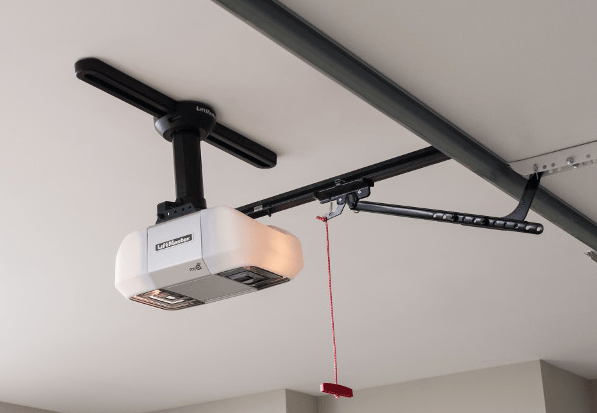Garage door openers are essential components of modern homes, providing convenience and security. However, like any mechanical device, they have a limited lifespan. Understanding the life expectancy of your garage door opener is crucial for proper maintenance and planning. In this article, we’ll delve into the factors that affect the longevity of garage door openers and provide tips for maximizing their lifespan.

Factors Affecting the Life Expectancy of Garage Door Openers
Several factors contribute to the lifespan of a garage door opener, including:
- Quality of Construction: High-quality garage door openers made from durable materials tend to have longer lifespans compared to cheaper, lower-quality models.
- Frequency of Use: The more frequently you use your garage door opener, the faster it will wear out. Heavy usage puts additional strain on the motor and components, leading to a shorter lifespan.
- Maintenance Practices: Regular maintenance, such as lubricating moving parts, checking for loose bolts, and replacing worn-out components, can extend the life of your garage door opener.
- Climate and Environment: Extreme temperatures, humidity, and exposure to harsh weather conditions can impact the performance and lifespan of garage door openers. Proper insulation and protection can help mitigate these effects.
Average Life Expectancy of Garage Door Openers
On average, garage door openers have a lifespan of 10 to 15 years. However, this can vary depending on the factors mentioned above. Higher-quality models with proper maintenance and infrequent use may last closer to 15 years or even longer, while cheaper models subjected to heavy usage and neglect may fail within 10 years or less.
Read too: The Complete Guide to Tighten Chain On Garage Door Opener for Smooth Operation
Signs Your Garage Door Opener Needs Replacement
Knowing when it’s time to replace your garage door opener can help prevent inconvenient breakdowns and ensure continued security and convenience. Look out for the following signs:
- Excessive Noise: If your garage door opener is making loud or unusual noises during operation, it could indicate worn-out or damaged components.
- Slow Operation: A garage door opener that takes longer than usual to open or close may be nearing the end of its lifespan.
- Frequent Repairs: If you find yourself frequently repairing or replacing parts of your garage door opener, it may be more cost-effective to invest in a new, more reliable unit.
- Safety Concerns: Older garage door openers may lack modern safety features, putting your family and property at risk. Consider upgrading to a newer model with advanced safety features for peace of mind.
Tips for Extending
To prolong the life of your garage door opener, follow these maintenance tips:
- Regular Lubrication: Apply lubricant to the moving parts of your garage door opener, such as chains, rollers, and hinges, to reduce friction and wear.
- Inspect and Tighten Hardware: Periodically inspect the hardware of your garage door opener for signs of wear or looseness, and tighten any bolts or screws as needed.
- Test Safety Features: Test the safety features of your garage door opener, including the auto-reverse mechanism and photoelectric sensors, to ensure they’re functioning properly.
- Schedule Professional Maintenance: Consider scheduling regular maintenance with a professional garage door technician to identify and address any potential issues before they escalate.
Conclusion
In conclusion, the life expectancy of your garage door opener depends on various factors, including quality, usage, maintenance, and environmental conditions. By understanding these factors and following proper maintenance practices, you can maximize the lifespan of your garage door opener and enjoy years of reliable performance.



Leave a Reply